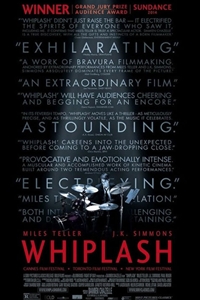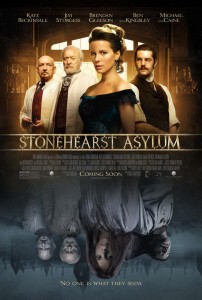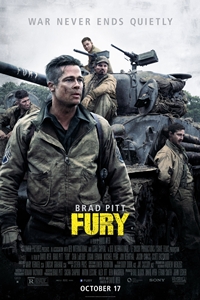 Nightcrawler
Nightcrawler
Louis Bloom (Jake Gyllenhaal) is first seen cutting a wired fence and filming his results, both seemingly illegal acts considering his demeanor. He doesn't strike the audience as a very trustworthy individual, particularly in the early moments when we see him committing increasingly reprehensible things, but he's charming. He speaks eloquently and assuredly, knows what he wants, and ensures that nothing will get in his way. That leads him on a pursuit to find a worthwhile job in photography, which eventually guides him toward filming for news outlets. He sees Joe Loder (Bill Paxton) filming a recent accident at breakneck speed, only moments after it has happened, and it amazes him. He buys a video camera after committing a deplorable act to do so, and his career begins. His first job takes him to Nina Romina (Rene Russo), a veteran of local news that likes his work ethic and wants to see more of his work. She asks where he gets his shots and he avoids many of the questions, like a mischievous child that's doing the right thing but won't say how he did it. He's slick and slimy, but oh my does he charm the socks off of these people.
Louis eventually needs help, so he puts out an ad and brings on an unpaid intern, Rick (Riz Ahmed). There's some sly commentary about internships and how they exploit the work force, which Louis thinks is inappropriate and unhelpful, but sure enough he jumps on the opportunity when he sees fit. That rascal. As Louis and Rick bond over crime scenes and become involved in darker and darker acts, the line in the sand starts to grow faint. Where does investigative journalism stop and criminal actions begin? Does breaking-and-entering under noble pretenses compensate for the crime committed? The film begs for answers to these strong questions and ultimately floors the audience with its message. The backdrop of Los Angeles, a notoriously divided community that's full of haves and have nots, allows for beautiful landscapes and harsh racial commentary from the local news affiliates. Rich white people don't want to see crimes in white neighborhoods unless they involve blacks or Hispanics. Simple as that. There's something frank about the way Gilroy presents his ideas, as they are matter-of-fact, fluid, but ultimately rigid and old-fashioned due to the people in charge of the media and its presentation of culture.
Gyllenhaal's performance is a career best and absolutely transformative. He's one of the strongest actors in Hollywood because he aggressively avoids typecasting or traditional roles. Opting for adventurous demonstrations of human character and the internal struggle many of us face, he's tackled some bold, expert roles in the past year: his mysterious, fidgety detective in Prisoners, his divided, haunted man in Enemy, and this manipulative, deranged power-monger and enigma. Louis is a character that runs mostly undefined in terms of his past and even his present, with the audience being unfamiliar with his family, past work experience, or even his traditional behavior. Yet we see the character crafted on screen and expressed through mannerisms and actions. It's brilliant acting. Russo and Paxton shine in their supporting roles, with the former in particular falling into the seemingly familiar role of fast-talking, do-whatever-it-takes newscaster only to become something more morally compelling altogether. Robert Elswit, Paul Thomas Anderson's longtime director of photography, provides some stunning, beautifully lit cinematography that captures the essence of Los Angeles and the haunt of the city. Nightcrawler is such a strikingly confident, articulately crafted work that it'll stand as an unforgettable, harsh takedown of media obsession and manipulation.

 Force Majeure
Force Majeure
 Camp X-Ray
Camp X-Ray
 Birdman or (The Unexpected Virtue of Ignorance)
Birdman or (The Unexpected Virtue of Ignorance)

 Stonehearst Asylum
Stonehearst Asylum
 John Wick
John Wick
 23 Blast
23 Blast
 St. Vincent
St. Vincent
 Fury
Fury
 Men, Women & Children
Men, Women & Children
 Art and Craft
Art and Craft








